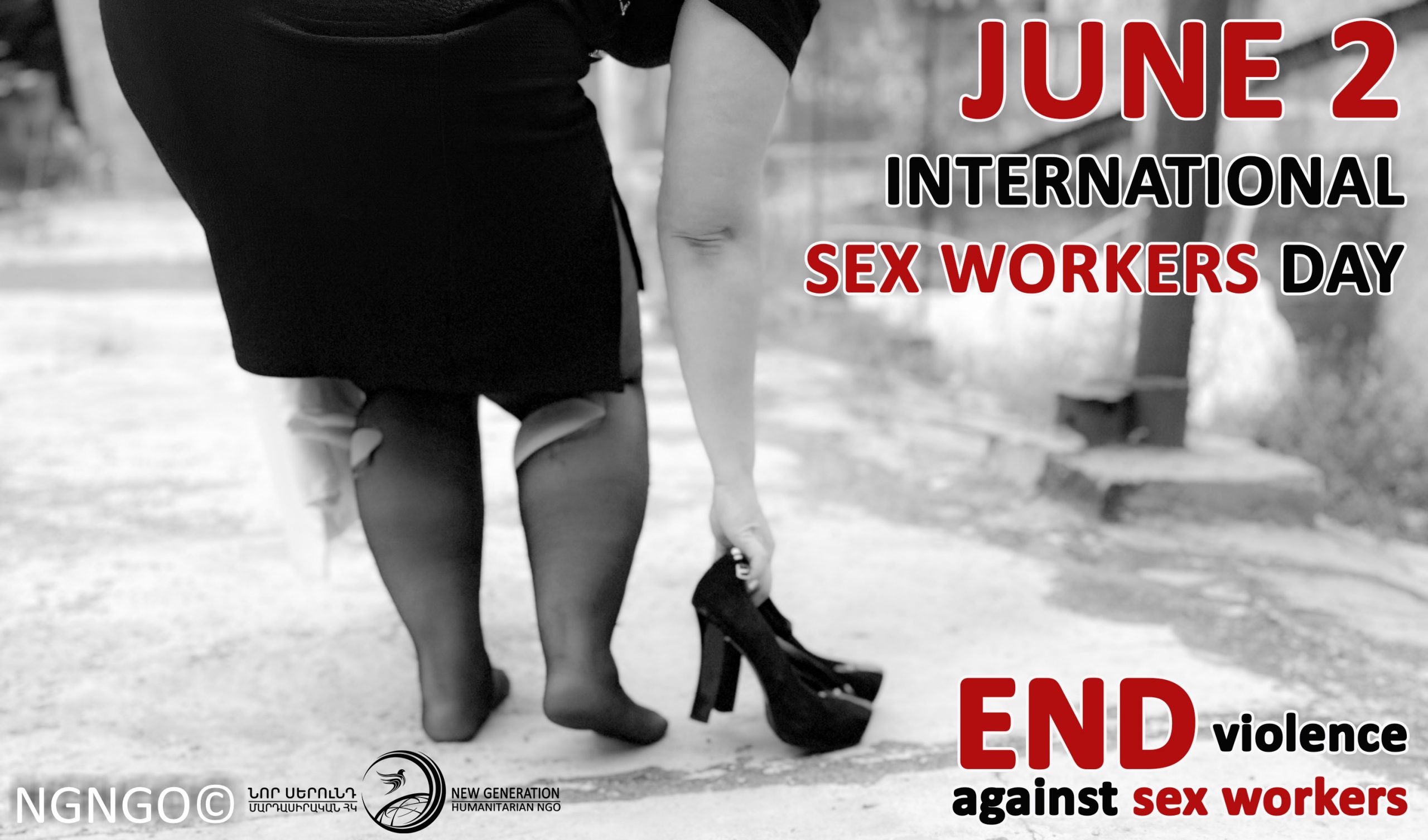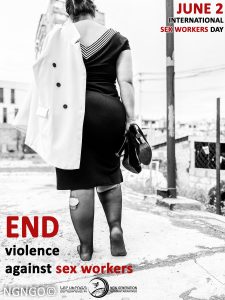
SEX WORKERS SHOULD HAVE ACCESS TO JUSTICE․ JOINT STATEMENT OF NGOs AND SEX WORKERS
On 2 June 1975, approximately 100 sex workers occupied Saint-Nizier Church in Lyon, France, to express their anger about their criminalized and exploitative living conditions. They hung a banner from the steeple which read ‘Our children do not want their mothers to go to jail’ and launched a media campaign to broadcast their grievances to the world. Their action made national and international news headlines, started a strike that involved sex workers from all over France, and created a legacy of activism that is celebrated each year on International Sex Workers’ Day.
Each year, on 2 June, sex workers from all over the world focus on the theme of Access to Justice.
The initial action in Lyon and the subsequent national strike illustrated that the sex worker community is stronger together, and days such as International Sex Workers’ Day should be used as a platform to amplify the voices of the global sex worker movement, and demand equal access to justice.
Sex workers around the world continue to face a wide range of barriers to accessing justice. Since sex work is widely criminalized, most sex workers are denied access to the benefits and rights afforded to other workers under labor laws and face the risk of criminalization, detention, deportation and legal sanction.
 Why is criminalization of sex work a human rights issue?
Why is criminalization of sex work a human rights issue?
Criminalization and administration exposes sex workers to abuse and exploitation, torture and humiliating attitude by law enforcement officials, such as police officers. Police officers harass sex workers, extort bribes, and physically and verbally abuse sex workers, or even rape or coerce sex from them, or force them to use themselves as a source of information about users of their services, and threaten sex workers who have not entered into a criminal agreement with them to disseminate personal information, photograph, provide for their families or relatives.
And the society is indifferent to this problem, because in the Soviet and post-Soviet times it was propagated that sex workers are a source of disease, they are destroying the Armenian family, they are living in a society, they have no right to vote anywhere at all.
How does decriminalizing sex work help protect sex workers?
Decriminalizing sex work maximizes sex workers’ legal protection and their ability to exercise other key rights, including to justice and healthcare. Legal recognition of sex workers and their occupation maximizes their protection, dignity, and equality. This is an important step toward destigmatizing sex work.
Isn’t sex work a form of sexual violence?
No. When an adult makes a decision of her, his, or their own free will to exchange sex for money, that is not sexual violence. Violence and rape are clearly described in the RA Criminal Code.
When a sex worker is the victim of a crime, including sexual violence, the police should promptly investigate and refer suspects for prosecution. When a person exchanges sex for money as a result of coercion – for example by a pimp – or experiences violence from a pimp or a customer, or is a victim of trafficking, these are serious crimes. The police should promptly investigate and refer the case for prosecution.
What should governments do?
Governments should fully decriminalize sex work and ensure that sex workers do not face discrimination in law or practice. They should also strengthen services for sex workers and ensure that they have safe working conditions and access to public benefits and social safety nets.
Moreover, any regulations and controls on sex workers and their activities need to be non-discriminatory and otherwise comply with international human rights law. For example, restrictions that would prevent those engaged in sex work from organizing collectively, or working in a safe environment, are not legitimate restrictions.
New Generation Humanitarian NGO, National Trans Coalition human rights NGO call on the RA Government to ensure the exercising of the basic rights of sex workers in Armenia, in particular:
- Ensure the protection of sex workers as a basis for discrimination in the Law on Ensuring Equality to be adopted by the Republic of Armenia.
- Train employees of state institutions to work with sex workers and to provide non-discriminatory services.
- Prosecute people who spread hatred and threats against sex workers.
- Recognize sex work as work and include it within international labor standards,
- Repeal all laws that criminalize, oppress or penalize sex work, sex workers, clients, third parties, families, partners and friends of sex workers.
- Ensure the meaningful engagement of sex workers in decision-making processes where their issues are discussed.
- Implement state support programs for the education of sex workers and their involvement in society.
The statement was developed and disseminated by New Generation Humanitarian NGO, National Trans Coalition human rights NGO and more than 20 female and trans* sex workers from all over Armenia.



